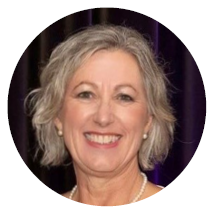Sea change or a reality check? Navigating the postcode lottery in rural NSW
An article written by Juliane Samara, Nurse Practitioner, NSWSLHD
As I reflect on the past year, it’s hard to believe I have transitioned from a specialist palliative care service in a bustling capital city to the picturesque Eurobodalla region of NSW. While I expected differences in a smaller community, implementing an aged care hospital avoidance program here has revealed the unique challenges of delivering health and palliative care in regional areas. These challenges often leave me feeling completely unravelled.
In urban areas, patients benefit from nearby resources, including medical specialists and multidisciplinary teams. Regional areas, however, face significant gaps in service delivery, underscoring the reality of a postcode lottery. In Eurobodalla, there is no dedicated palliative care unit or hospice. Access to a palliative care medical specialist is limited to part-time telehealth, which only scratches the surface of the community's needs.
Southern NSW has a higher proportion of older residents than the state average, with over 11,300 individuals aged 65 and above. The appeal of a coastal “sea change” has brought retirees who often leave behind established urban support networks. While the lifestyle is idyllic, it increases demand for healthcare services, stretching the region’s already scarce resources.
Life expectancy in regional NSW is about three years lower than in metropolitan areas, and for older people with chronic or life-limiting illnesses, life can be profoundly challenging. Factors such as geographical isolation, unreliable internet, weak mobile connectivity, and limited public transport compound the difficulty of accessing healthcare. Many residents must travel over 3.5 hours to reach the nearest tertiary hospital. Those in residential aged care facilities who are unable to sit in a car face even greater barriers, as they are not eligible to use patient transport services.
The housing and homelessness crisis further complicates care delivery. The aftermath of the 2019-20 bushfires, coupled with an influx of urban dwellers during COVID-19, has left many living in caravans, tents, or unsafe housing. This instability makes it even harder for health providers to reach vulnerable populations.
Workforce shortages exacerbate the region’s healthcare challenges. Recruiting experienced professionals is difficult in areas with limited housing and infrastructure. Fewer general practitioners result longer wait times and overburdened hospitals, and reduced support in aged care facilities - leaving aged care nurses frustrated and palliative care patients feeling overlooked or neglected during critical moments.
Perhaps the most distressing aspect is when patients are admitted to hospital to die due to insufficient home care services and lack of family support. Spending their final moments in a sterile hospital environment instead of the comfort of home is heartbreaking—for patients, families, and palliative care providers who strive to deliver compassionate care.
The logistical demands of regional and rural healthcare also take a toll. On a typical day, I travel up to 130 kilometres to provide care across two hospitals and eight residential aged care facilities. These long distances reduce clinical time, extend work hours, and increase the risk of fatigue and burnout.
Despite these challenges, my journey in regional health and palliative care is one of resilience and growth. Each obstacle has become an opportunity to foster connection and advocate for transformative change. Nurse practitioners possess the expertise to deliver high-quality care in regional and rural areas, and by leveraging this, we can drive systemic improvements.
Ultimately, the goal is to ensure that all individuals, regardless of where they live, can choose to spend their final days in their preferred place, surrounded by loved ones and with dignity. While the path is fraught with difficulties, the potential to create meaningful change is both motivating and deeply rewarding.
Authors

Juliane Samara
Nurse Practitioner
Southern NSW Local Heallth District